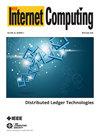分布式量子机器学习:联合与模型并行方法
IF 4.4
4区 计算机科学
Q1 COMPUTER SCIENCE, SOFTWARE ENGINEERING
引用次数: 0
摘要
本文探讨了两种分布式量子机器学习(DQML)方法:量子联合学习和量子模型并行学习。我们讨论了在 DQML 中遇到的挑战,提出了潜在的解决方案,并强调了这一快速发展领域的未来研究方向。此外,我们还针对这两种类型的 DQML 实施了两种解决方案,旨在提高计算过程的可靠性。我们的研究结果表明了 DQML 在当前嘈杂的中量级量子时代的潜力。本文章由计算机程序翻译,如有差异,请以英文原文为准。
Distributed Quantum Machine Learning: Federated and Model-Parallel Approaches
In this article, we explore two types of distributed quantum machine learning (DQML) methodologies: quantum federated learning and quantum model-parallel learning. We discuss the challenges encountered in DQML, propose potential solutions, and highlight future research directions in this rapidly evolving field. Additionally, we implement two solutions tailored to the two types of DQML, aiming to enhance the reliability of the computing process. Our results show the potential of DQML in the current Noisy Intermediate-Scale Quantum era.
求助全文
通过发布文献求助,成功后即可免费获取论文全文。
去求助
来源期刊

IEEE Internet Computing
工程技术-计算机:软件工程
CiteScore
7.60
自引率
0.00%
发文量
94
审稿时长
6-12 weeks
期刊介绍:
This magazine provides a journal-quality evaluation and review of Internet-based computer applications and enabling technologies. It also provides a source of information as well as a forum for both users and developers. The focus of the magazine is on Internet services using WWW, agents, and similar technologies. This does not include traditional software concerns such as object-oriented or structured programming, or Common Object Request Broker Architecture (CORBA) or Object Linking and Embedding (OLE) standards. The magazine may, however, treat the intersection of these software technologies with the Web or agents. For instance, the linking of ORBs and Web servers or the conversion of KQML messages to object requests are relevant technologies for this magazine. An article strictly about CORBA would not be. This magazine is not focused on intelligent systems. Techniques for encoding knowledge or breakthroughs in neural net technologies are outside its scope, as would be an article on the efficacy of a particular expert system. Internet Computing focuses on technologies and applications that allow practitioners to leverage off services to be found on the Internet.
 求助内容:
求助内容: 应助结果提醒方式:
应助结果提醒方式:


